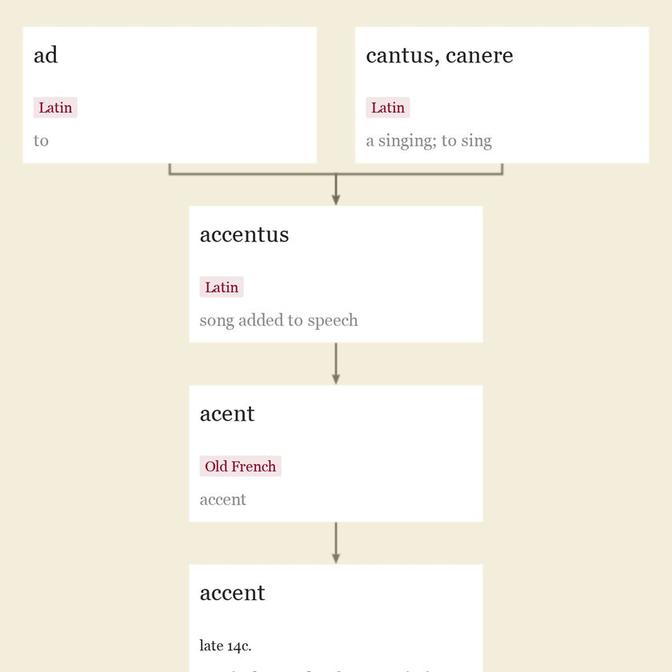accentual (adj.)
"与重音有关的",大约在1600年,来自拉丁语 accentus(参见 accent(n.))+ -al(1)。相关词汇: Accentually; accentuality。
最早记录年份: c. 1600
accentual 的相关词汇
accent (n.)

14世纪晚期,“特定的发音方式”,来自古法语 acent “口音”(13世纪),源自拉丁语 accentus “添加到语言中的歌曲”,来自 ad “到”(见 ad-)+ cantus “一首歌”,过去分词形式为 canere “唱歌”(来自 PIE 词根 *kan- “唱歌”)。
拉丁语单词是希腊语 prosōidia 的借译,来自 pros- “到”+ ōidē “歌曲”,显然描述了希腊诗歌中的音高方案。
“努力发音,使一个音节在音高或重音上比另一个音节更强”的意义可追溯至1580年代; 作为“用于书写的标记或字符,表示重音”的意义,记录于1590年代。装饰艺术中“强调或突出某物”的意义始于1972年。
The soundest distinction perhaps is that "accent" refers to the habitual stress laid on a syllable in ordinary pronunciation ; "stress" to a syllable specially accented for this or that reason, logical, rhetorical, or prosodic purely. [George Saintsbury, "Historical Manual of English Prosody," 1914]
最可靠的区别或许是,“口音”指的是在普通发音中习惯性强调的音节; “重音”指的是因逻辑、修辞或韵律等原因而特别强调的音节。[乔治·圣茨伯里,《英语韵律的历史手册》,1914年]
-al (1)
后缀,用于从名词或其他形容词中形成形容词,表示“属于,像,相关的”,中古英语 -al, -el,源自法语或直接源自拉丁语 -alis(参见 -al(2))。